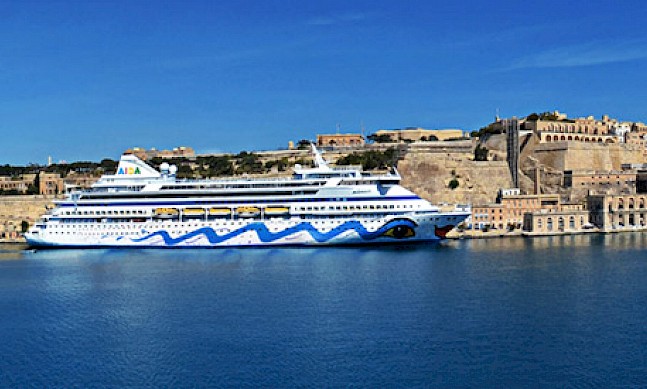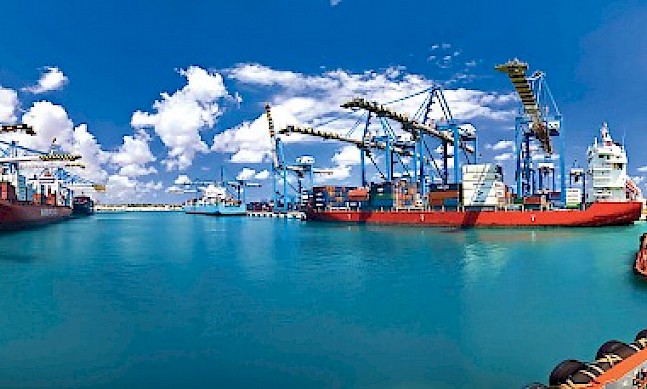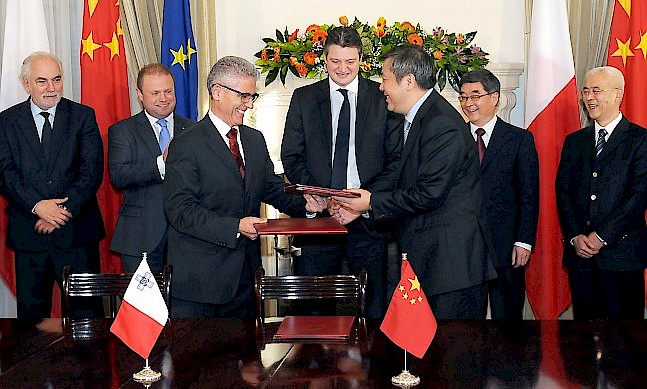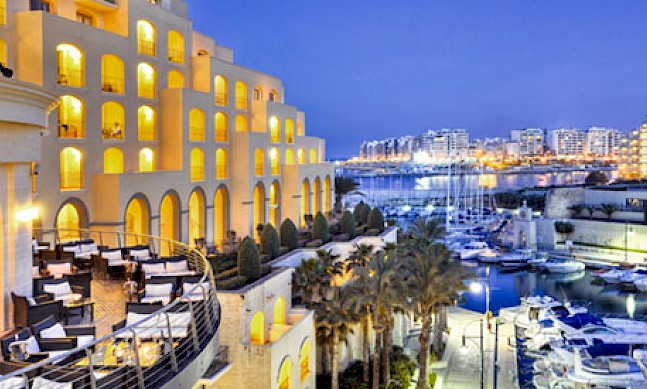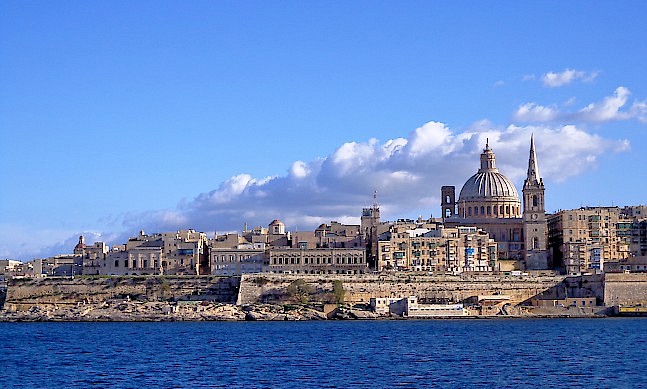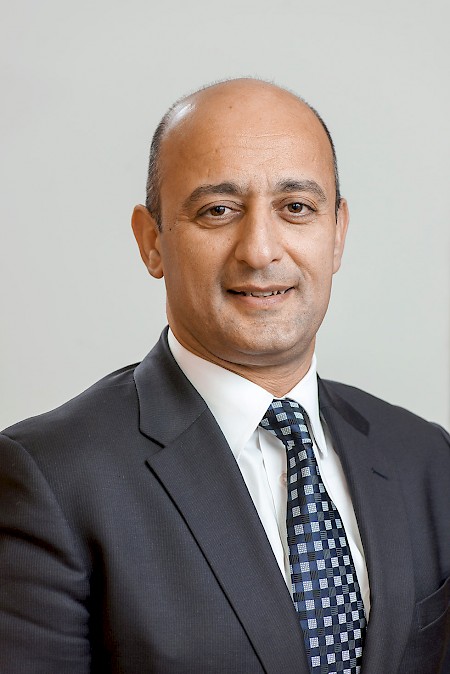
Despite being the smallest of the European Union’s member states, Malta is emerging as one of the fastest-growing financial services centres in Europe. FinanceMalta, a membership-based, public-private initiative, is working to promote Malta on this front. Its chairman, Kenneth Farrugia, met with The Report Company to discuss the opportunities presented by the various financial sectors within the industry.
The Report Company: How would you appraise Malta’s financial sector?
Kenneth Farrugia: Despite the doom and gloom that has characterised the global financial markets over the past five years, particularly the markets in Europe, Malta, the smallest EU member state, has managed to weather the storm and has successfully achieved steady economic growth over this period registering a real GDP growth of 2.4 percent in 2013. Within this backdrop, a number of economic sectors have contributed to the sustained positive performance of Malta’s economy where the financial services industry has managed to register double digit growth over the past five years.
Malta’s EU membership in 2004 gave rise to an interesting paradigm shift where the growth of the financial sector started to be gradually driven by international business. However, despite the growing international interest in Malta’s financial centre, it was clearly evident that, in the minds of international investors, Malta was not positioned as a financial services domicile where one could conduct international business. Rather Malta was very well known for its climate and as a great tourist destination having a rich historical heritage.
Consequently, in order to address this information gap, in May 2007, the various financial services associations together with the government of Malta set up in partnership FinanceMalta as a foundation. FinanceMalta was vested with the responsibility to develop and strengthen Malta’s financial services brand beyond its shores and at the same time to create networking opportunities for its members.
Over these last six years, FinanceMalta together with the support of its 270-strong member base has organised a concerted range of initiatives to promote Malta’s financial centre through the use of various media channels as well as the participation in numerous international financial services events primarily organised in mainland Europe. This had a highly positive impact on Malta’s financial services brand visibility and has created significant awareness on the sound positioning of Malta’s legal and regulatory framework as well as the operational infrastructure in place that could support the onset of international financial services business.
As a result of these initiatives, a number of financial services sectors have managed to register very strong growth. Suffice to mention that in the insurance sector, Malta had eight insurance operations in 2004; today there are 58 insurance businesses ranging from reinsurance to captives. Only eight insurance companies licensed in Malta are active in the local market, a figure that reflects the international orientation of Malta’s insurance sector.
The investment funds and asset management sector has equally registered impressive growth. Malta had just one investment fund in 1995, whilst as at December 2013, the regulator had already authorised over 600 investment funds, 27 fund administrators and 123 investment management service providers, which clearly signifies the formation of service and product clusters in this sector. Equally impressive results were registered in the credit and financial institutions sector as well as the trusts and foundations sector.
Malta is fast becoming an attractive jurisdiction for matters concerning private wealth. From the ability to structure trusts and foundations, Malta is becoming increasingly attractive for high-net-worth individuals. Malta offers a set-up which is both flexible and responsive to any changes. This includes the option to have the trust governed by the laws of a country other than Malta.
“Malta could offer itself as a gateway to Chinese investment in the region particularly taking note that historically, Malta enjoyed strong relationships with China.”Post This
TRC: What is it that makes Malta attractive?
KF: Malta’s EU membership and the presence of a comprehensive yet sound and robust legal and regulatory framework has significantly enhanced the development of international financial services business. Another critical factor contributing to the success achieved so far is the presence of a single regulatory body, the Malta Financial Services Authority. The presence of a one-stop shop regulatory authority in Malta where international operators may licence any form of investment services business was a welcome reprieve for many international operators who in their home markets still need to go through various financial services regulators. In Malta, if you want to list a company, license a fund or set up an insurance operation and other kinds of financial services business, the MFSA, which is a meticulous regulatory body yet very much pro-business, is a one stop shop.
Malta’s cost competitiveness is equally another important factor which strengthens Malta’s value proposition. Malta ranks very highly not just in terms of its competitiveness insofar as operational costs are concerned but equally in terms of the value for money when one considers the skills and expertise present in the market such as audit, legal and other support services.
TRC: Where do you see room for improvement in the regulatory framework to make Malta more competitive?
KF: Regulations in Europe are becoming increasingly homogenised. As an EU member state, Malta has to transpose the various directives and regulations being introduced by the European Commission. The introduction of directives across Europe has reduced regulatory subjectivity between EU member states. However, there are other important factors such as the presence of a robust and comprehensive legal and regulatory framework, cost competitiveness, our service orientation and equally the time to market. All these are the differentiating factors which I feel have driven international business to Malta.
TRC: What can be done to strengthen Malta’s human capital?
KF: Our most prized asset is our human resources. We have never managed to strike oil or gas despite various initiatives on this front so our economy has invariably remained dependent on the provision of services such as aviation, tourism, maritime, ICT, education and of course financial services. In view of the changing economic landscape, government and industry have introduced various training initiatives to address the demands of these new realities. Apart from the significant investment in training initiatives, various other initiatives are being undertaken to maximise the use of the labour force. For example, Malta has the lowest female participation rate in Europe so the government is introducing incentives locally to encourage more females to go back into the working world.
On a European front, Malta’s EU membership acts as a safety valve as certain skills may be easily imported from Europe given the ease of mobility of European workers between EU member states.
“Today Malta is ranked very highly across various financial services criteria relevant to the financial sector. The World Economic Forum (WEF) Global Competitiveness Report classifies Malta as a leading financial jurisdiction ranked among the top 20 countries.”Post This
TRC: What is FinanceMalta doing to influence the evolution of financial services?
KF: When FinanceMalta was set up in 2007, the first initiative the board and management undertook was to identify those key sectors where Malta had a strong value proposition. Five key sectors were identified which consisting of insurance and pensions, investment funds and asset management, credit and financial institutions, trusts and foundations, and wealth management.
Around these five pillars, the board and management of FinanceMalta launched various initiatives to strengthen the visibility of these sectors and highlight their respective key attractiveness criteria.
The results achieved so far as a result of all these initiatives speak for themselves. Today Malta is ranked very highly across various financial services criteria relevant to the financial sector. The World Economic Forum (WEF) Global Competitiveness Report classifies Malta as a leading financial jurisdiction ranked among the top 20 countries. Other attestations include Malta’s ranking as the most favoured European fund domicile by Hedge Fund Review, a preeminent hedge fund publication. If you look at the operators that have established their businesses in other sectors, you find some very big renowned firms.
Our strategy going forward is to sustain the initiatives in Europe but equally initiate the process to strengthen the visibility of Malta beyond Europe’s shores such as the Gulf, Hong Kong and China and the US.
It was very unfortunate that when we set up FinanceMalta, Europe started to face unprecedented challenges and difficulties marked by debt quakes and banks going bankrupt. As a result this brought about a consolidation of the sector rather than expansion. However, I think our value proposition left its mark and on the back of that we started seeing international companies and operators setting up in Malta.
Investors that have set up business here have come to enjoy Malta’s political and economic stability and the way business is conducted. By way of our historic legacies, we have inherited the British way of doing business; we’re quite up front and candid with potential investors exploring business opportunities through and from Malta and our strong service orientation goes a long way to assist our clients to bring their plans to fruition. It is my view that whilst more needs to be done on the branding side, the brand visibility gap has markedly narrowed over these last seven to ten years and there is still room for further growth. In the funds industry for example, assets managed in and from Malta exceed €70 billion of assets. Luxembourg has €2 trillion. It is challenging to get to €2 trillion, but clearly there is room to further grow this sector in Malta.
Overall the industry has registered strong growth but it has much more potential to grow faster going forward. Malta’s growth has been somewhat clouded by the crisis in Europe, but once sustained economic growth is kickstarted in Europe, Malta will end up a beneficiary as much more business will come to our shores.
“Over these last six years, FinanceMalta together with the support of its 270-strong member base has organised a concerted range of initiatives to promote Malta’s financial centre through the use of various media channels as well as the participation in numerous international financial services events primarily organised in mainland Europe.”Post This
TRC: What potential do you see in increasing cooperation with China within the financial services sector?
KF: Malta is on the lookout to attract Chinese financial services business. Through such strategically placed location, Malta could offer itself as a gateway to Chinese investment in the region particularly taking note that historically, Malta enjoyed strong relationships with China and the recent development in the energy sector which saw the involvement of a Chinese state-owned energy company in Malta’s own state-owned energy company has further elevated the relationship between the two countries.
With the recent signing of the Memorandum of Understanding between the Malta Financial Services Authority and the Chinese Securities Regulatory Commission, Chinese qualified domestic international investors are able to invest on behalf of Chinese investors into Maltese-domiciled funds.
Chinese financial services operators may use Malta as a platform to penetrate the European marketplace. By setting up an operation in Malta it’s not just Europe, but it’s the southernmost part of Europe and that’s the North African continent and that is where I see the value proposition. North Africa is in a period of profound change and transition and as a result this brings about various opportunities.
TRC: What are your objectives for the future, and where do the challenges lie?
KF: We want to sustain the various initiatives that we have organised so far within the European marketplace. Clearly there are still opportunities in Europe and we want to continue strengthening our brand visibility there. We’re expanding our reach to areas like Hong Kong and China and the Gulf. The sheer size of these markets implies a bigger challenge but Malta is renowned for punching above its weight.
Our challenge is to sustain our competitive factors that have been critical to the industry. We need to be remain focussed in ensuring that bureaucracy does not stifle the ease of doing business and in the process remain as lean and focused in the delivery of the various services remaining synonymous with our culture of getting things done.
Malta’s strategic location in the centre of the Mediterranean coupled with its excellent economic relations with North African countries make the island a perfect springboard for businesses looking to expand into the European or the North African markets. The country’s financial services sector is thriving despite the global economic slowdown – a testament to the universally acclaimed regulatory system underlying Malta’s success as a financial centre.
Clearly, doing business in Malta is doing business at the highest benchmarks and standards possible. These high standards – in regulation, in professional services, in human resources, in infrastructure, in IT services and in competitiveness – are what will ensure Malta is able to fulfil its potential as an international financial services centre.


